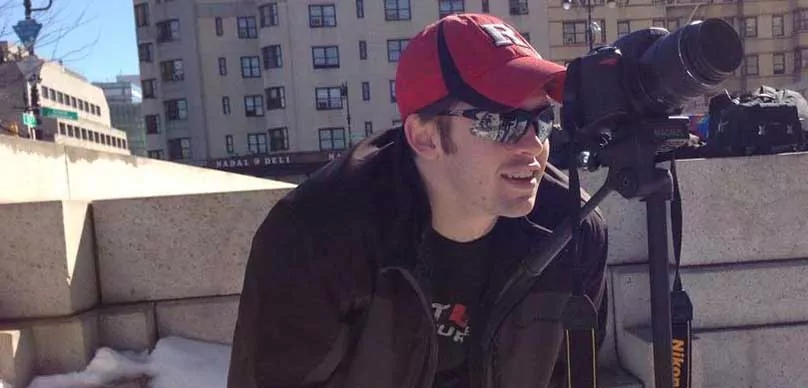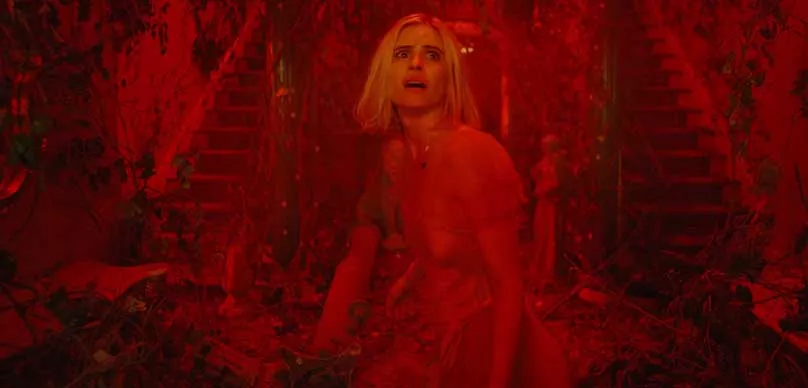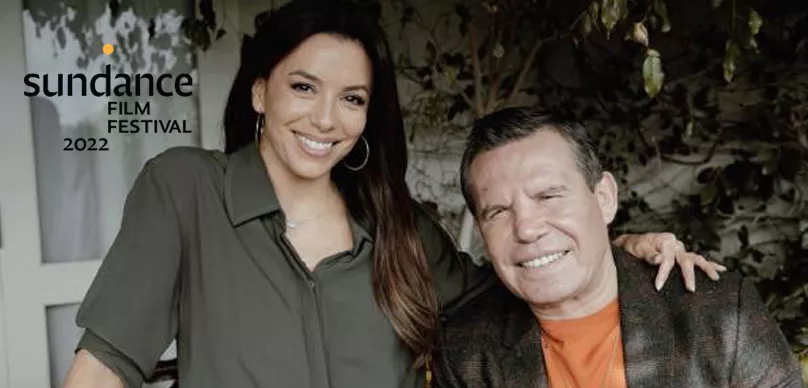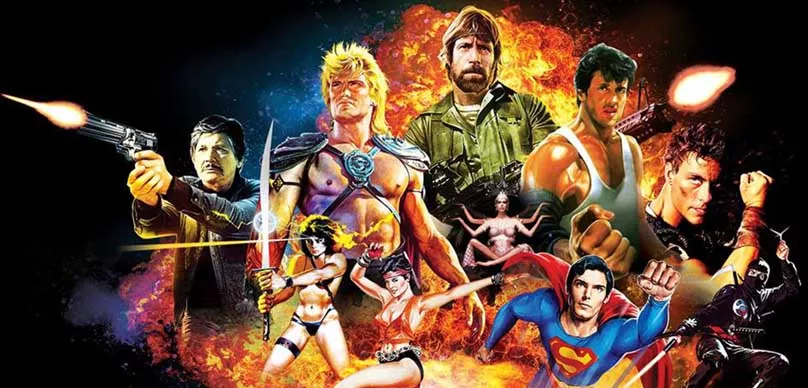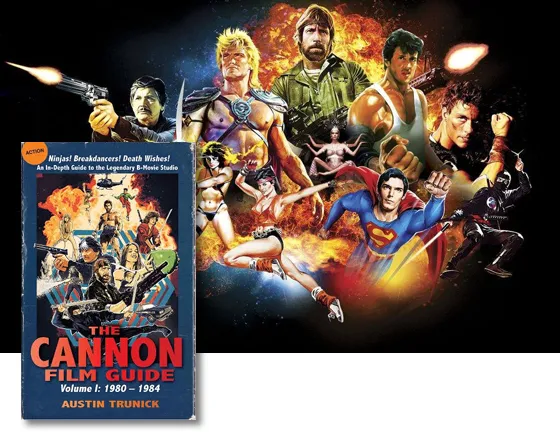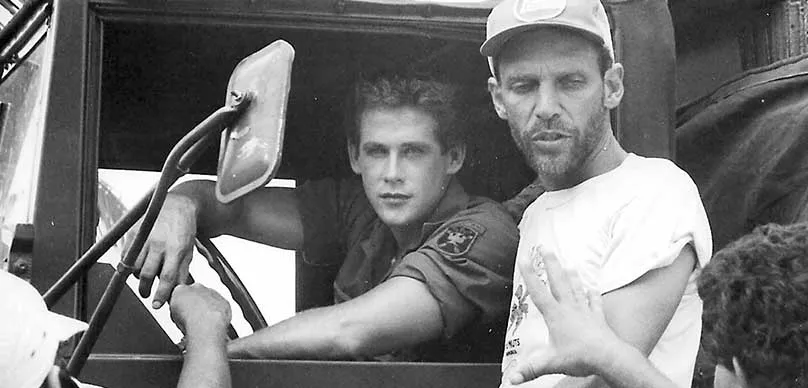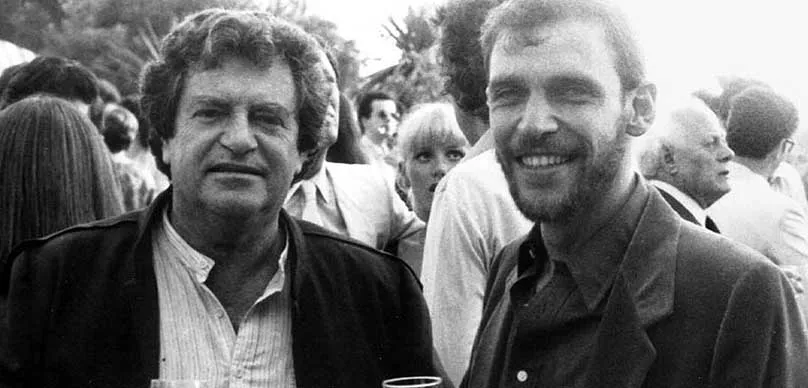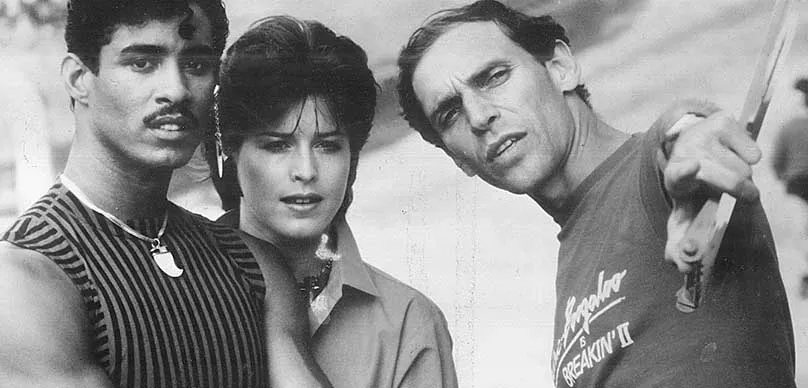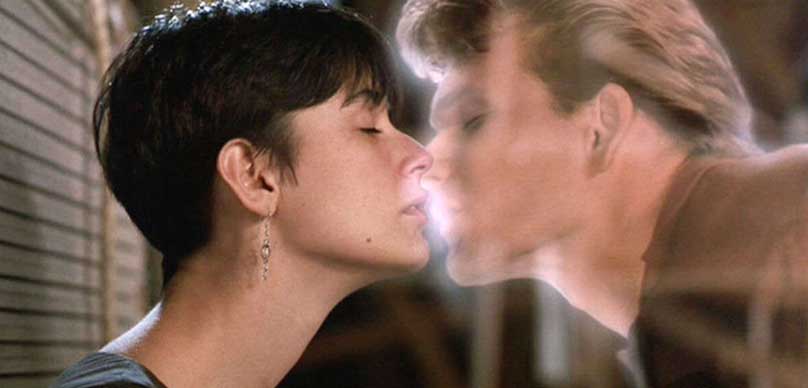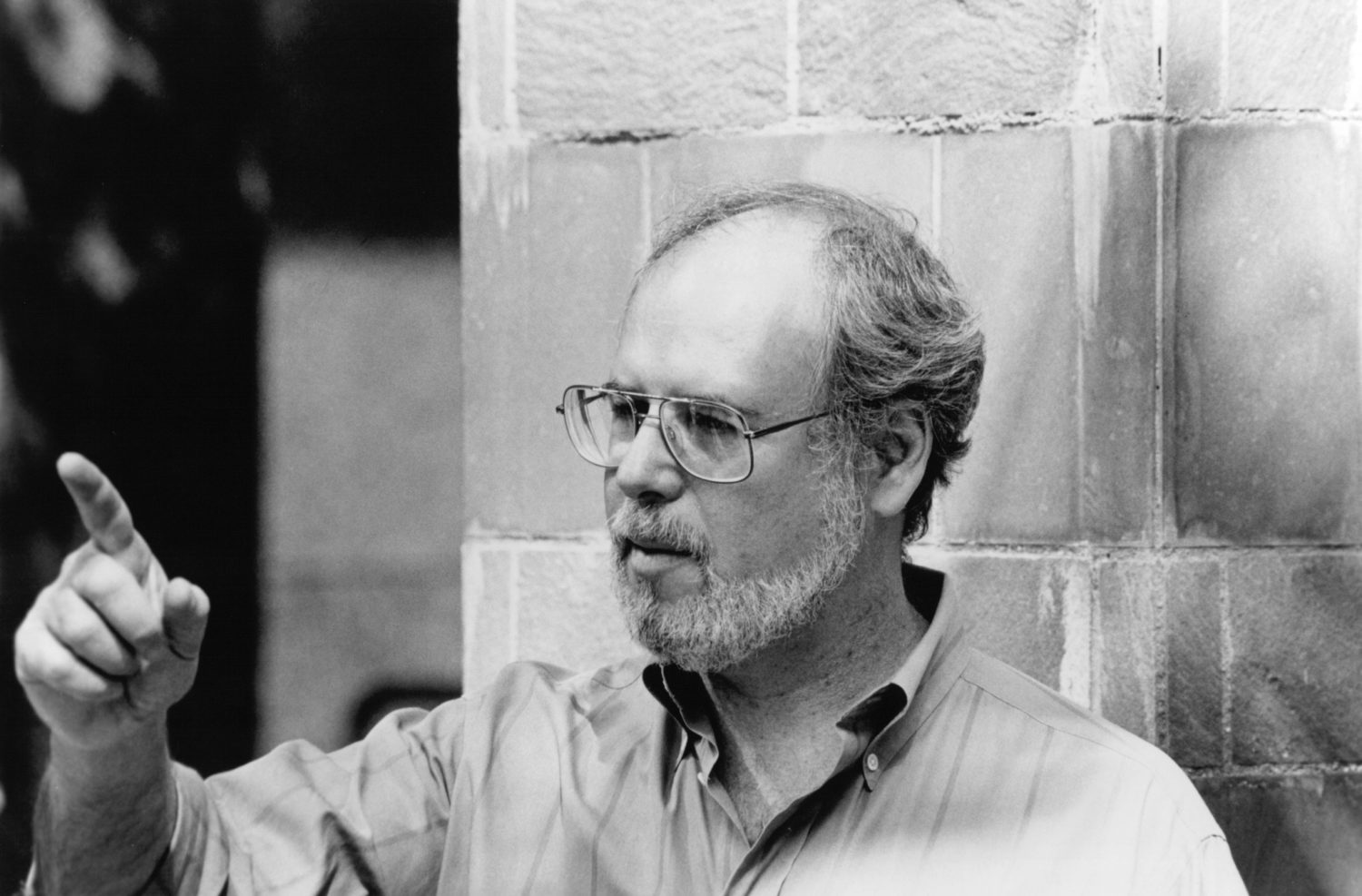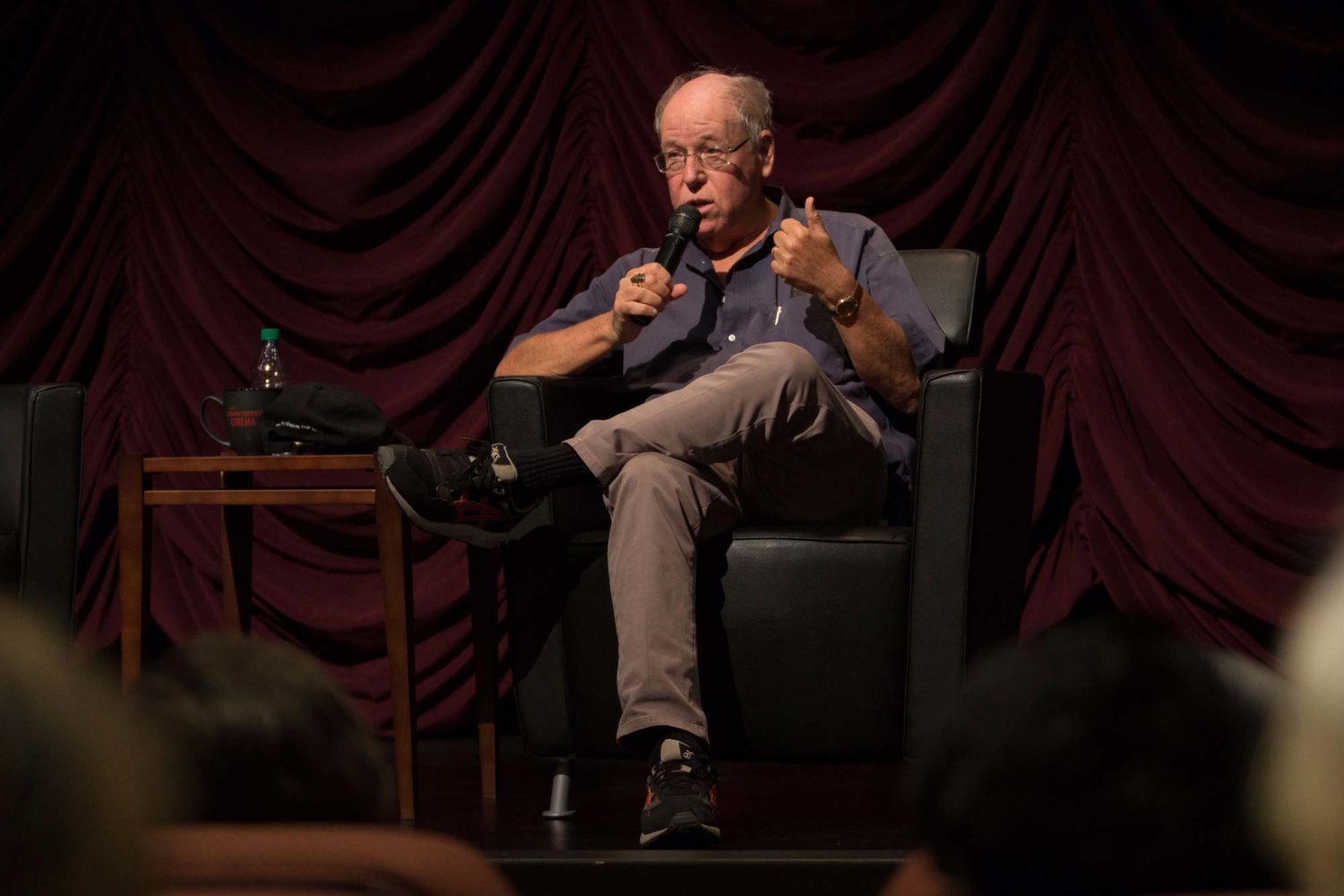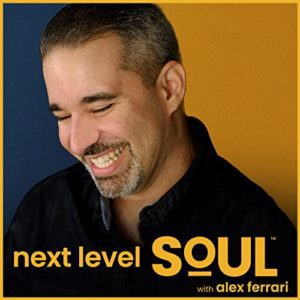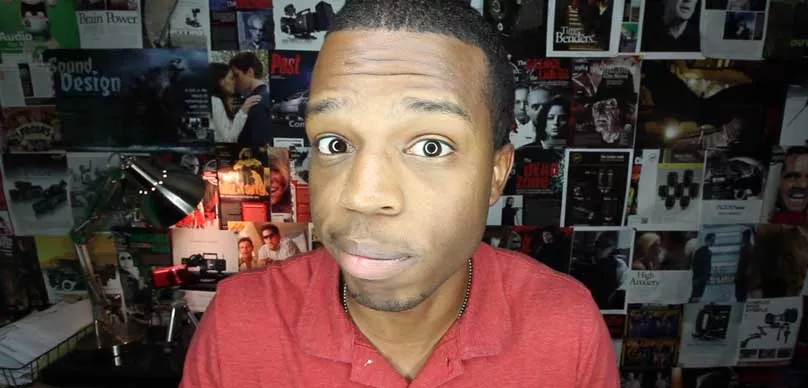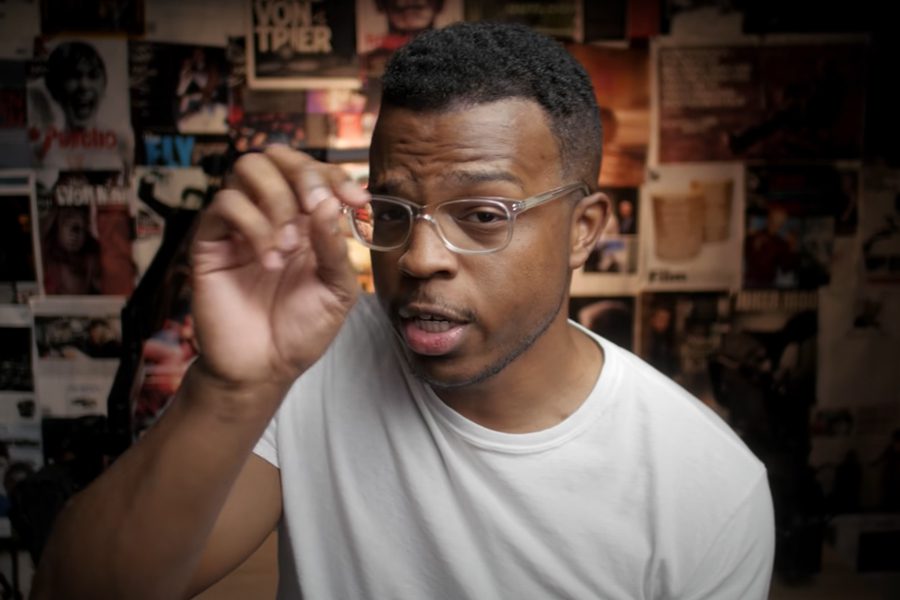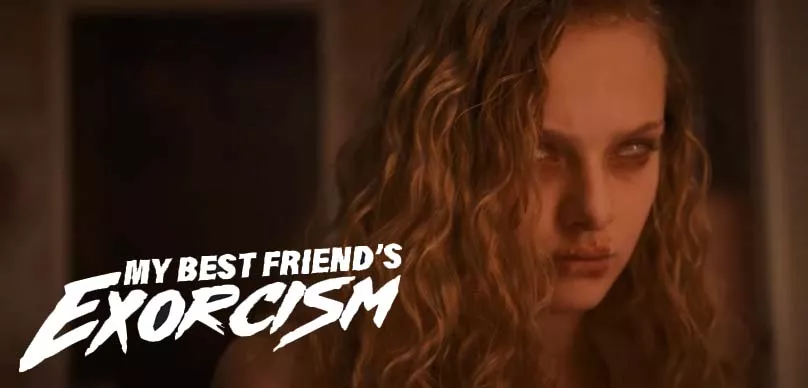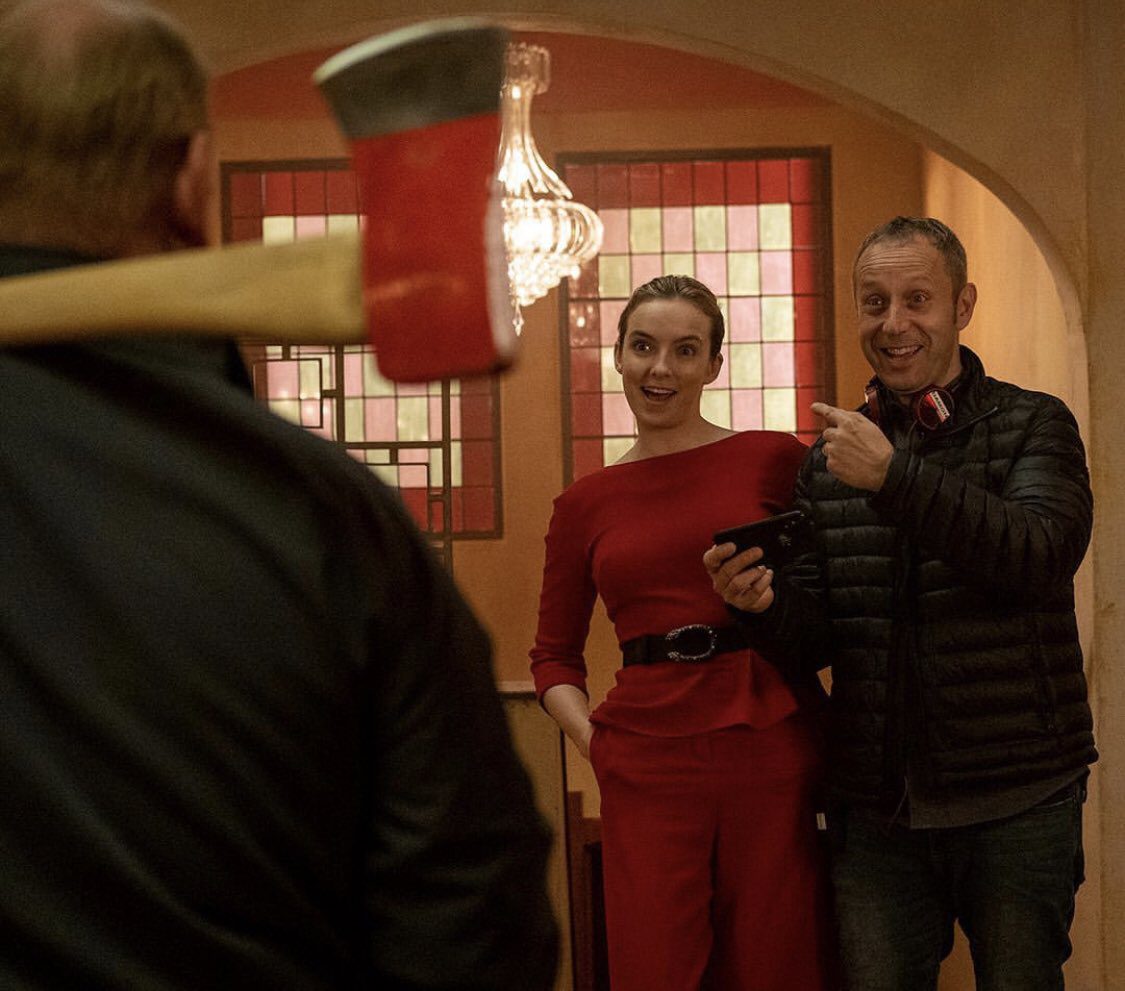I was introduced to filmmaker, Zack Morrison’s plight when I read an amazing article in the Wall Street Journal about his $ 300,000 student loan debt from Columbia University film school.
Zack is a short film director and writer. Some of his work include Everything’s Fine: A Panic Attack in D Major and Captain Cyborg.
Everything’s Fine: A Panic Attack in D Majoris a musical comedy about a woman at the onset of her quarter-life crisis and her existential journey through the various stages of anxiety in song and dance.
Captain Cyborgtells the story of a young boy with a hyperactive imagination who creates a superhero alter-ego in order to confront bullying at school. Unfortunately for Jake, the lines between reality and fantasy start to blur, and he is forced to make a decision that will change his life forever.
This was Zack’s big second-semester project at Columbia University’s MFA Film program. It began as a script swap process where everyone signs on to direct someone else’s story as an exercise in collaboration and adaptation.
Zack’s passion for filmmaking goes back to eight years old after being inspired by a Steven Spielberg Lego movie game
He followed through by doing his BSc at Rutgers and his graduate in film at Columbia University. We get into the deep of his choices to attend an Ivy League school for film, the accumulation of debt, and how that has impacted his life.
You can watch Zack’s short films on his website or his YouTube channel — you can find the links in the show notes below. Let’s get this conversation started.
Enjoy my conversation with Zack Morrison.
Right-click here to download the MP3
LINKS
- Zack Morrison – IMDB
- Zack Morrison – Official Site
- Youtube
SPONSORS
- Bulletproof Script Coverage– Get Your Screenplay Read by Hollywood Professionals
- Audible– Get a Free Screenwriting Audiobook
Alex Ferrari 0:11
I'd like to welcome to the show Zack Morrison, man. How you doing Zack?
Zack Morrison 0:15
Good. Good. Thanks so much for having me.
Alex Ferrari 0:16
Man, thank you so much for, for coming on. I was introduced to your plight, when I read the when I read this amazing article in the Wall Street Journal about what you are going through what you've gone through. And it is a topic that is dear to my heart, which is student debt. But I had not quite heard about it from the Ivy League side of things. Because when I think film school, I don't think Ivy League generally speaking, but before we jump into the deep end of the pool on that, let's first have to ask you a question. What made you want to become a filmmaker? Like what was the catalyst? Oh, man,
Zack Morrison 0:56
um, I think the what, what really did it I mean, I grew up watching movies, and you know, so like, I just a big movie fan my whole life even as a kid. But the thing that really did it was I was really into Legos as as a kid. Like That was my whole thing was like playing with Legos. And you know, building like, not following the directions of the thing and like building my own stuff. And, you know, forming these little stories with these Lego people in my head. And every year on Christmas, that was like the big family activity was, you know, after all the presents and stuff were over and family's over, we would all sit down and like build a Lego set together, especially my grandfather and I and one year, I must have been eight or nine years old. It the Lego set that year was a Steven Spielberg Lego set. Nice. It was it was the it was the coolest thing. It was like you build, you know, a little cityscape and a dinosaur to come in and knock it down. But you also built like the camera crew and the lights and like all the grip and everything. Stop it.
Alex Ferrari 2:00
Stop it. Why isn't this in my life?
Zack Morrison 2:04
it's it's the coolest thing ever. But it came with, you know how like, it has the instruction book on how to build the set. In the back of it was a storyboard for frames of how to shoot the movie, the you know, the the movie that the set teaches you how to do and it came with this little camera and this very, very basic editing software. And it blew my mind it was it was without a doubt the coolest thing. So I started making this little Lego Movie. And then from that point on, I like played with the Lego set for a day got rid of it. And then now I just had this camera and this editing software at eight years old. And I was off to the races I started, you know, stealing my dad's camcorder on every family vacation. You know, I would go out in the backyard and like Middle School, and that's when that's when like jackass was big. So he was like, Hey, we're hanging out in the backyard and like doing stuff, you know, like our friends, we would all get together and just film stuff. And when High School came around, I played sports, but I rode the bench because I was terrible athletes. But I would do that all the sports highlight tapes for all my athlete friends. And just from that point on, I just knew. So you know, by the time I got to college, I was just that's all I wanted to do with my life was make short films and specifically comedy. And and it's quite literally the thing I've been doing for my whole life.
Alex Ferrari 3:24
It sounds like is from eight years old. I didn't find my passion till I was in my teens but and I was again it was I was given a camcorder and I'm a bit older than you. So you had technologies that I did not have access to. I was editing between two VCRs back in the day, but yeah, that's Yeah, that sounds like it sounds like you know, once you get bitten by that damn bug, you can't get right. It's done. It's a done disease that we're stuck with. So we just the curse that doesn't go. So okay, so you've been making movies all you know, from from eight years old until 1819, I guess at that point, and you decide, hey, you know what, I think I want to go to film school. What? So can I ask you what made and what year was that, by the way that you went to?
Zack Morrison 4:10
My senior year in high school was 2010. So okay, like college, like the college discussion was happening around like 2009 2010.
Alex Ferrari 4:19
Okay, so there was a lot of stuff out there for education, as far as filmmaking at that point, still wasn't a tremendous amount, but it was not like today, but still, there were some YouTube channels, there were some education, things like that. You would have been directing and shooting and editing your own stuff for such a long time. Why did you decide that you wanted to go to film school, and then we'll decide then we'll talk about which film school you chose?
Zack Morrison 4:45
Yeah. I think the you know, the big thing for me was especially as a high school student, you know, I was taking I was, in hindsight extremely fortunate. My high school had, like the arts programs at my in my town. So my high school were very, like they prided themselves in in establishing those. So we had video production courses in high school, you know, I was in the band, so I was playing music and stuff as well. And so I just I knew art, in some form in some medium was the thing. And I had so like, I just, I loved it so much in the fact that I could do it in school was was like the life changing sort of revelation that I had up to that moment school like, that was the hobby I did. After school. That was the thing I did on weekends. And school was like math and science in history. And I was like an okay student, but I was not inspired by any of it. And you know, as as you grow up, and you get through high school, you start thinking like that, what am I going to do with the rest of my life. And I realized I want I wanted to make films, I want to tell stories, like, that's the thing I want to do. And I knew that just knowing how the kind of student I was in the kind of, you know, environment that is conducive for me, I knew I wanted to go to a film program. You know, in some of my favorite, like, all time favorite filmmakers went to film school, and that was, you know, in doing research, that was the path that, you know, I just that made sense in my 17 year old brain, you know, because this was, this was before, like, Ryan Connelly, and Film Riot really blew up, you know, this was before, like, the sort of DIY film education on YouTube became a thing, there was a lot of like, sketch comedy, like Smosh was huge. And, you know, that was when after john was on, yeah, rocketjump Andy Samberg was on SNL at the time. So like, the idea of like, where you can make funny videos was very much a thing, but the How do I go about pursuing, like the craft in a broader sense? You know, the, the option that made sense to me was was film school. So, you know, junior year of high school, I was, you know, looking at looking at programs and obviously, I checked it, you know, you look at NYU, you check out all the, you know, the big undergrad programs, but I'm from New Jersey, and so I you know, I always had Rutgers as like the state school in my back pocket. I live now, even five minutes down the road from campus, you know, all my family went there, I baby pictures in in rector's gear. And so, you know, I always knew that was a thing. But at the time, there was no film program. There was not a thing. They had journalism, they had broadcast. And they had Film Studies, but there was no filmmaking. And it became a thing after like, I applied to schools, and NYU rejected me, you know, that like the traditional sort of undergrad film programs all rejected me because whatever. Don't say that came down to I had, oh, no, no, I don't lose sleep over it. But it came down to Emerson College in Boston, and Rutgers, where it came where my, you know, to kind of top two choices. And, you know, I was also playing I played volleyball in high school and the coach at Emerson, it was a d3 program. And so he brought me up for a recruiting visit, and I visited the film classes, and it was awesome. And you know, as this was, like, everything I wanted, I could play the, you know, the game that I love, and I could do the stuff that I love for school, and it made sense. And then I saw the, you know, the bill, or what it what it would have been. And at that time, it was just wait, it was outside of what the budget for college would have been compared to in state tuition at my state school. And so records just ended up making sense. And so I decided to go there for undergrad.
Alex Ferrari 8:37
Right. Okay, so you went to Rutgers? And then you decided to go to Columbia University for film now. I've been in the business a long time. And I know all the film programs pretty well. Columbia is not one of the ones that gets spoken about often. So wasn't it's not ASI. It's not UCLA, USC, NYU, it's not even la film school or full sail. It's an Ivy League school. So when you think Ivy League, you don't generally think film program.
Zack Morrison 9:08
True, but I will say that, I think specifically if you're looking at graduate, like the graduate film programs, and like every year with like The Hollywood Reporter, and whatever that article is that like, lists them all, you know, comes it's on there somewhere. Yeah, your top five or Columbia and NYU on the east coast and asi UCLA and USC in LA, you know, those are, at least domestically in the US I would consider, you know, the five top programs and anyone you ask that you can, you know, plus minus whatever the rankings are, I know Chapman's a good one also. But But you know, specifically for graduate film programs. You know, it was always on my list. It was always you know, I had a undergrad professor that went there and taught there and so he you know, kind of gave us the the Kool Aid a little bit The thing that made me really want to go to film school in general was, I did four years of undergrad, loved it had the time of my life. And Rutgers was developing a film program. As I was there, I was kind of like the guinea pig student for what a film major could be like, every semester, they kept adding classes, and I kept taking them. And I did like an individualized major. And it was cool when I was like, in the room my senior year when they like, you know, the governor's office was like, okay, there will now be a BFA in film, after you're gone, you know, which was, which was, I was super proud of it. But you know, after four years of like, advocating and stuff, I'm glad now students that at the Art School at records have a program on the
Alex Ferrari 10:42
introduction of the measure question, what made you think, what, who gave you the information that said that you needed a master's degree or, or, you know, even even a bachelor's degree in film to make it in the film industry, so that just something that you came up with? Or someone was telling you this? Oh, no, no
Zack Morrison 10:59
one, no one told me that I knew that. I this was a path that I was choosing for myself. And because you know, everyone, like, I have a bunch of friends who never went to film school. I know, there are a bunch of filmmakers that never went and it was, I never felt like that was the only answer. I just felt like, that was the path that made sense for me. You know, like, fair enough, undergrad, opened up so many opportunities for me. You know, like, everything I've done up, like, up to that point was as a result of school. And every, like, every film that I had, in every festival, every, you know, every, all the trips, and like the people I met and the jobs that I had, everything came through school, through the transfer property all a product of, you know, my connections that I made it records and so, you know, when it came down to, you know, senior year in college now, this is like, 2014, and I was working a lot. You know, I had a huge portfolio of narrative films and music videos, and I'm directing stuff all the time. And, you know, I'm working at MTV. At the time. It's like a, you know, in there on air promos department, like, Here's what's coming up next on Teen Wolf and like, a bunch of stuff. And, and so, you know, I was starting to think like, Okay, what, what's next, you know, and the two options that were presented, you know, that just sort of made sense to me was one, I could, you know, spend 1015 grand by like a read, go in New York and hustle as like a freelance production guy. totally valid option. Option B was, right, my feature film and just like, like, fucking do it live was the thing we said all the time in college. So it's like, yeah, maybe I can just like do my feature now. But I knew I wasn't ready. I knew I didn't have just the, the sense of self as both a person and then a business manager, and then an artist, like, it wasn't, I wasn't ready to do that yet. And option C was looking into graduate film schools, you know, because, you know, again, like I had professors who I went to undergrad, who I had for undergrad, went to grad school. And so they kind of told me about that. But then also looking at like, you know, that at Tisch at NYU, Spike Lee doesn't work with the undergrads, he works with the grad students. And you know, that at ASI, the Peter start producing program, that's a graduate program. And, and so I just started thinking, Okay, there's still there's a potential Avenue here, you know. And, you know, being from the east coast, I looked in New York City schools, and, you know, NYU, obviously, is the is the big kind of name one, but you look at a school like Columbia, who has, you know, Jennifer Lee, Kathryn Bigelow, just a ton of a ton of people who've come out of there. And so the program was got on my radar. And then I applied to, you know, I applied to NYU, Columbia and USC, because I figured if I'm gonna, if I'm gonna do this unnecessary thing, right, if I'm gonna go to school, I might as well go to a program that that means something to some people potentially, and that to go to a you know, and so, I got rejected from NYU and USC at the same day. So I was like, Alright, I guess schedule is not going to be It's fine. It's not, you know, I'll just go in the city and hustle and then and then I got a call for an interview at Columbia. And so it just the the choice kind of was just fell into my lap like it was almost made for you. Yeah. And like, at that point, you get you get an offer like that. You don't you say yes. And you figure it out later, you
Alex Ferrari 14:26
know. So the point before your undergraduate What did that what was the cost? tuition was
Zack Morrison 14:32
tuition wise, it was, I don't know. Off the top of it was like in state tuition. 20 it was like 20 something a year, something like that. A year a year. Yeah, yeah. And, you know, my, my mom, my mom worked at the school. So all all say for one, like my first year tuition was it wasn't tuition remission is like tuition reimbursement. So we kept like, recycling the same tuition check each year. And then the only costs were room and board and the random fees that go into into school. So it wasn't I wasn't finishing college like undergrad with a lot of debt
Alex Ferrari 15:12
at all. Okay, good. So you, you it was a very manageable amount of debt coming into undergraduate. Which is the same for me when I went to full sail in Orlando, which is a tech college and I paid I think total when I came out my student debt was, I think, anywhere between 18 and 25. If you include like, living costs and stuff like that off campus and stuff, and it was 9596. So it's a little bit different time, obviously. Yeah, yeah. And there wasn't. And at that point, there was really no other option, like there was, there was no information anywhere other than books and behind the scenes, videos and stuff. Like there was nothing. So I didn't have an option at the time. I'm like, Okay, this is what the film school I want to. But okay, so then you go into Columbia, and then what is the how many years? Were you in the program for graduate?
Zack Morrison 16:01
Yes, so Columbia's MFA program, it's very unique in the sense that it's a three to five year program. And and, you know, most most MFA is or two years, you're in a room. And, and so thankfully, it was, it was still only two years of class and two years of full time tuition. But the sort of the interesting part was year three and onwards, you become an artist in residency at the school. And so you know, if you think about how that will compare to a more standard to your MFA, where you do your two years of class, you kind of, in your second year, you just focus on your thesis film, and then you're out. And then you have a year to a couple years after grad school to sort of do that next, you know, to like, either write the script or do the movie, kind of on your own, you know, or like, whatever your calling card piece is going to be. and Columbia, you know, I kind of fell in love with their philosophy of Look, you're going to do that work anyway. Why not do it here, under our supervision under our, with our resources with the, with all your classmates here on campus? And it was it was, it was an interesting concept, you know, and so it was I ended up staying for four years. It was two years of like, full time class 21 credit semesters, no time for working an outside job. And then your three in your for the total opposite. I had no class no assigned, no, like project work or anything. It was just cool. You know, I was a screenwriting students. So like, write your pages and and do your movie, do your short and call us when you have it? You know?
Alex Ferrari 17:39
So what were the costs for each year?
Zack Morrison 17:42
So that I mean that you the full the kind of full time part year one in year two, that was like your, you know, your 5060 grand? Yeah. I think was like 60 something a year, and then plus the cost of living in New York City? No, because, yeah, so I ended up taking out loans that ended up being something in like, the 80 ish, but I don't have that 30 year numbers in front of me, but like the 80 ish, yeah, per year, because I also had to take out loans to afford to live in New York, and not work. And then your, your three and your four, like those thesis years, it was significantly less, but it was still like, it was still a good amount. So you know, grand total, it came out to like, including, like the all the interest that might have been generated, I'm up to like 202 190 something from just grad school. And then you add on like the little bit of debt I'm in left for for undergrad and it kind of kicks me over the that 300 level. And that's
Alex Ferrari 18:44
just my stomach is turning brother. I'm so sorry. As you're saying these numbers, I'm like, Oh, it's like you are living it. And I'm just like, and it's so painful to hear. Did you understand the financial obligations you were getting into? When you sign up for it? I mean, I know you're not you obviously just graduated with a BA. So you're not dumb. Right? But But did you really grasp what was going on? Did you like did you think in your mind, oh, well, I'll just sign up for this. This is a great opportunity. I'm gonna make a million first few years anyway, like, what was the mindset of this? Because that's what I did. I said, I'm like, yeah, hollywood should just bring their truck of money just dump the money truck. They should they should be realizing my genius any day now.
Zack Morrison 19:37
Right? No, thankfully, um, you know, as a as a college senior because I went straight in from undergrad to grad because I knew if I didn't go then I was never gonna go back to school. And I was very much aware of what I was signing up for you I almost didn't go like I the the big, you know, debate I had was, again because the the decision Like which school was not a factor? It was like one or nothing. That was the big debate I had for months, you know, even even before even her Yes, like the application was, was Thanksgiving of 2013. And I heard like March or April of 2014. And I had about a month or month and a half period to make a decision. And so I, I, you know, obviously, the number is massive, and it's terrifying, but I knew going into it, what I was doing. You know, I that was like the running joke with with all my friends like, Oh, yeah, like, I'm screwed. I'm never gonna pay this off. Which, you know, that kind of humor doesn't translate into a print article. But, um, yeah, I knew what I was signing up for. And the way I justified it in my head at the time and even now was like, a, it was a once in a lifetime opportunity. You know, there was no chance to defer there is like, I'd have to apply again. And I knew again, once I left the school system, I was never in started working full time, I was never going back. And so just in that moment, at that time, I was like, here's an opportunity. Here's life saying, Here's your shot, you know, you did the, you did the DIY thing for four years in undergrad, you know, you you helped build a program for future students. And here's the universe saying, here's, here's a chance to actually invest in yourself and dive in and, and do something, you know, that you wouldn't have had the chance to do if it wasn't for the last four years of work that you put in. But yeah, I, you know, I, I think like I've obviously I've never seen $300,000 like in my life before that like that. The what that physically looks like it's like that scene from dodgeball where he opens up the briefcase, and it's like, people normally don't see this unless it's in the movie, you know,
Alex Ferrari 21:52
by the way, very good. Ben Stiller. Very, very good Ben Stiller impression my friend very, very good. No, I yeah, no, it's almost it's almost, I don't mean to make this light of it. But it's almost a comical number, like it does. It doesn't seem real. Like it really is. I can't I can't even comprehend being 300,000 plus dollars in debt. And for everyone listening, you have to understand like, Zack can't file bankruptcy. Like he can't keep this is debt that will be with him. And again, dude, I don't mean like, rub salt in your room. I'm just trying to educate people listening. They'll know, but like, this is debt that he will carry with him for the rest of his physical life. Maybe they'll figure out a way to take it to the next life. I don't know. Trust me, banks will figure a way to do it if they can. But that's something that a lot of people who do sign these on the like, I'll just file for bankruptcy. I'm like, no. Thanks to a certain president in the early 2000s. They signed a deal. A law stating that you cannot bank rip yourself out of student loan, which, okay, so Alright, so let's go back to a lot of things I want to kind of open up here. Okay. So I'm not questioning the education that you got to Columbia. I'm sure it was top notch. I've spoken at USC, I've spoken at New York Film Academy. I've spoken a lot of these schools. And I've talked to the instructors. And I've seen that the syllabus, I'm like, dude, I would have killed to go to USC would have killed you go to NYU, coming up with their amazing, amazing programs. But the ROI doesn't seem to make sense. And it's not just in filmmaking, but like, I have a friend of mine, who's a social worker, who went and got a Master's at USC for social work. I don't know about you, but I don't know a lot of rich social workers. That's generally not the way social work works. So she was in debt for 184. So social work, right. And then I had another friend who has a master's degree from Florida a&m, or for Florida in Florida International University. Same same degree different school, she was $20,000 in debt. Right for social work. Do you see that? She's paid it off already? Yeah, the other one will never. So that's when I when I talk about ROI. I'm like, if you can afford the school, go for it. Film schools have a lot of benefits and potentially a lot of things, resources and context. Like you were saying, but $80,000 a year for those two years plus, the next two years. The ROI doesn't make sense. Do you? Do you agree with what I'm saying?
Zack Morrison 24:45
I agree that the numbers sound crazy. Like I totally I totally hear you on like the math and, and the you know, the article, The Wall Street Journal article, they had this fun little graphic where you can like see you Know, the school and the cost and then like, what the average person in that field is makes two to three years out of school like that in in a bubble makes perfect sense.
Alex Ferrari 25:10
Yes.
Zack Morrison 25:11
The the part that, that I always like because I you know, I've been having this conversation going on for years now, since I went to school in the first place, and the part that I always bring up to people is that a lot of the benefits of that ROI, like a lot of the things that you're investing into, and like the dividends that investment pays, are, are non quantifiable, you know, especially in relation to the like, how much money you're making out of school. You know, I spent the last two years in Los Angeles hustling and trying to do the Los Angeles thing. And so, you know, I was entering a workforce where your entry level job is like 30 grand a year, or, you know, if you're lucky, if you're lucky, if you're lucky, and like 15 bucks an hour and no health insurance and all that jazz. But the, you know, even just on like a superficial level, what I had that a lot of these other, you know, my peers in the workforce didn't have potentially was for feature screenplays that have been workshopped over the course of four years work that got me a manager, which helped me bring bring myself out there, you know, a short film that that was nominated for, and then won an Emmy. And that started conversations. And so there's, I mean, again, those are just sort of the superficial egotistical benefits. But the even on that surface level alone, you know, I don't know if, like, the kind of basic equation of like, what's the ROI from the cost of your degree? I don't know if that equation works. You know, there's, it's like, we're trying to do like a divide by zero thing we're, we're ignoring, you know, I can ramble about metaphors all the time. But you know, you don't I mean, there's like, there's it, I'm able to justify it in for me, based off of the the work that I know. And the experience that I had that like does, that doesn't factor into that equation is that
Alex Ferrari 27:11
it does, it does make sense to certain extent, but like, you know, as my wife always says that the numbers never lie. And all of those things are great. And look, I you know, when I when I got out, and I was stuck with that debt, and I deferred it for a year, and my interest went up, because I was working as an intern, you know, working no making no money for the flight for the first six months or something like that, or something like or working as a PA making, at the time, 75 bucks a day. Because I was back in the day, until I finally got my legs under me. And then once I got my legs under me, and I started like, Oh, I guess I could I have a job now. My first job in the business was making 23 grand as a tape vault guy in a commercial production house. Then I became an editor. And then I was making stupid money as an editor in Miami in the 90s, when money was just flying everywhere. It's just everywhere. So and I was able to pay off my debt Little by little, until I finally got it off. But But you know, the things that I learned in my personal experience, the things that I loved my film school, I loved it, it was fun. I got to play I got to learn. But a lot of the information that I learned there was very antiquated because we were I got caught right between the digital analog switch. So okay, so there was no lighting, no, there was very little non lean, linear editing, right? Like avid wasn't a thing just yet. And there is no final cut yet and any of that kind of stuff. So I was caught in that little weird place. So a lot of the stuff I learned, I could just talk to the old guys at the studio, so proud, but really didn't help me get a job.
Right. But so I'm not sure what the ROI was for my experience. But with all of that said, if you had I mean, obviously, if you had a chance to go back and go, is this worth $300,000? Or could I have gone? Could I have been my short film without the again and still get an Emmy nomination without going to that school?
Zack Morrison 29:11
that the answer is physically, it's possible to do all those things. And maybe, maybe someone could have, and I'm not. And that's not to say that any, like, indie filmmaker listening like that, I'm not trying to say that film school is the way like not the Mandalorian like this. It's not. But for me, it was and like, I don't you know, because I don't have you know, an uncle in the industry like New Jersey is as far away from the film industry as as one can physically get geographically and still be in the United States. And so, it That was my way. And that's fair enough that that was my way into into jobs. Like I wouldn't have worked at MTV, if it wasn't for undergrad. I wouldn't have gotten in like the tonight show or Saturday Night Live if it wasn't for connections I made while in film school in New York City. So like, even just from like a door opening, I know that's one of like, the cliches that people say, Oh, you go to film school, so it opens doors, you know? And but it did, it really did. And so I don't know if I don't know if I'd be writing at the level I would be at now. If it wasn't for film school, I don't know if I'd be as confident a director as I would be now if it wasn't for school. And so I don't, I wouldn't change anything. So slight debt.
Alex Ferrari 30:35
So what So what was the purpose of you coming out publicly is, you know, saying, like, I've been financially burden, you know, in that article, like, I've got 300,000 plus dollars in debt, like, what was the purpose of you coming out? Because I understood, I get your point of view, I get you, there's no question, do you learn something, and you've got some bang for your buck? I just my personal opinion, don't think that, that education is worth that amount of money, where there are other programs that are more affordable, that could teach you a lot of those things. And, and even then, in 2020, we talk about 2014, there's a tremendous amount of online education, and, you know, even going to other schools and things like that there. There are other options at that point. It's not like it was 85 Oh, yeah,
Zack Morrison 31:27
for sure. And again, like I wholeheartedly understand that was not the only option, you know, and I didn't feel pressured in any way, you know, like, in reading since the article came out, like reading the comments section, you know, like, I think the thing a lot of people are, are missing is like, I know that it's crazy. You know, like, like, I'm, well, you're for that.
Alex Ferrari 31:51
But you're a filmmaker. So filmmakers are not we're not, we're not genic
Zack Morrison 31:54
that's a starting point. You have to be insane to, to grow up wanting to be an artist and to continue doing it, you know,
Alex Ferrari 32:01
oh, and then to pay obscene amounts of money. Because I paid obscene amounts of money as well. I only went to school for I went to a special program was a year and a half. And it was $25,000 in 1995, or 94. Whenever I went, so it's insane. That's insanity with no, no job prospects. No. It's not like it is now like now there's just jobs everywhere. There's also a lot of people looking for those jobs. But in the 90s. You kidding?
Zack Morrison 32:31
Yeah. No, but the reason why I wanted to speak up. There's a couple reasons. One, I mean, like, objectively correct, like, no school, like school should not cost anything near what it costs in this country. You know, I don't, you know, I don't think the federal government should be making money off of off of the debt that they're, you know, giving us like, when we take out student loans, the interest rates are insane, you know, and so what's
Alex Ferrari 32:58
the interest rate? What's interesting? I don't even remember what mines was.
Zack Morrison 33:03
It's like, it's like this. I don't I don't want to throw a number out and they'd be wrong.
Alex Ferrari 33:08
Ruff, ruff. Yeah, I think it's like six, I think in like this, this kind of stuff. It's for education, man, you shouldn't be like, it should be one, it should be like
Zack Morrison 33:18
a it should be nothing. Or at the bare minimum, whatever, like the prime, like, whatever prime is whatever prime is like it should like at a bare minimum, it should be that we shouldn't. Tuition shouldn't be that high. But anyway, that's a whole different conversation. But a you know, I just wanted to say like, Hey, this is the thing that I experienced. And you know, and I did everything I could, in my conversations in that to really stress that like, I'm not trying to, like I don't second guess anything. I'm not criticizing any aspect of the school itself. It's more like that's just the nature of how much school costs and that's the problem. But also, I knew that like having come from a journalism background, I wrote I've written for news before I was a journalism major, technically in undergrad and and so I know how I knew how to talk to a reporter and I felt comfortable talking to a reporter and I knew a lot of my classmates did not feel comfortable doing so. And I also knew that there was the chance that if someone who you know a classmate of mine who didn't feel comfortable talking to a reporter ended up feeling pressured to do so and then said something they regret on the record and that's like a whole thing. So I was like, yeah, I'll do it. Sure. I have no problem.
Alex Ferrari 34:31
So somewhat to the reporter came out came looking for you guys or was you did you go looking for them?
Zack Morrison 34:36
I got I woke up to an email in my inbox saying, Hey, we're doing a story on student debt you want to talk and at that point, like I wasn't even on like Facebook and Twitter and whenever I was not very private about it, I have no shame and because it's a joke, right? Like it's hilarious. I have I mortgaging a house I'll never live in you know. And so I even like I wasn't contest it during the game show pay it off. Like it was on that show on Game Show on TBS, and like the bit was instead of giving you money, we give it off. And so I was when they were workshopping it, like in Brooklyn. I was one of their test contestants. And, you know, I went in and this was in like a, you know, like, kind of warehouse in Brooklyn. And they were where they were workshopping the game. And they had, I was one of three contestants. And like, two of them had, they were both undergrads and I don't know, had like, 2121 50,000 in debt. And I was like, Hi, I'm Zack Morrison. I'm 300k in debt. And there's just like, a silence that like, and we can't have this. We can't
Alex Ferrari 35:41
if this guy wins, he's gonna bankrupt us.
Zack Morrison 35:43
Yeah. And like the game show, like, clearly the game was not prepared for me that you know, and, and the funniest part was, I won, like, I won the test episode. That's horrible. Oh, my gosh, that's like, and they were, they were really great about it like that. You know, like, the whole crew is they were fantastically supportive of it. It was just, it was really funny. And that was, you know, that was just a from that moment on. I was like, I should just be talking about this because it's, it's hilarious. You know?
Alex Ferrari 36:13
I mean, it I mean, it is looking out. I mean, I'm glad you have a good attitude about if not, I mean, you have to have a good attitude about it. If not, you just you know, just at the at the end of it just like gets over. But so Okay, so mo is your most your student debt federal?
Zack Morrison 36:29
It's it's 100% federal, yeah, it's
Alex Ferrari 36:31
100% federal. So this is absolutely in the control of the US government to help students and citizens get going in life without screwing them over with interest payments. Even if it looked at it, look, if you went into like, Hey, I got $300,000 in debt. But every day, I'm assuming you're not making the full payment. Oh, like I'm not making any payments. Also, so so now it's just become a joke, essentially.
Zack Morrison 37:04
Right? Because it's in cut like I'm on the income based repayment plan. I've been unemployed since like unemployed. Since the pandemic hit. I've been you know, freelancing and gigging. And
Alex Ferrari 37:13
sure, your career, but you're accruing interest. Yeah.
Zack Morrison 37:16
And, and, like, I'm on the income based repayment plan. And, and, according to that, and like the tax bracket that I'm in, I don't, I don't have to make any payments I'm making, I'm paying what I can, but my payment plan is do zero a month, because they know I'm not making any money.
Alex Ferrari 37:35
So that's, that's they're a little bit better than a bank, but not by much.
Zack Morrison 37:39
Not Not by much. And this is this is the federal government and like they're, you know, why? Why are we knowing how, like the relationship between schools raising tuition, and the government allowing loans to be larger and larger and larger. I'm not like an economic economist, I'm not a writer, either. But like, whatever that relationship is of like tuition rising, and the government raising the ceiling of the loan limit, like if the government stops writing loans, maybe are we gonna keep raising tuition if people can't, you know, so like, that's that macro issue, I think, is what I hope is the conversation that comes out of all this, you know, why just why does education cost so much?
Alex Ferrari 38:24
Well, that's the thing, too, I'm like, there's at a certain point, like I was saying, with the social worker, like, if the job you're trying to educate yourself to get, or the career that you're trying to get doesn't even come close to the tuition you're paying to get, it doesn't make any sense to go to that school, can you find that same education or an equivalent education at a cheaper school, a state school, you know, something else like that. So like, USC versus f IU, you both get a quality education. They're both very good schools. Obviously, USC is more prestigious, but it's a private school, if IU is a state school. So if you know, for $20,000, or $160,000, for the education of a social worker who's going to make probably less than a filmmaker, which is scary. Coming out, does that is that is that? Should they even be legal? Like I'm being I'm being honest here? Like, is it legal to charge someone $80,000 a year? And let's say it's a two year master's program? Yeah. So 160 plus whatever it costs to live in that in the state that you're going to go live in? Is it even legal to charge somebody that much when they know, they know the school, I'm sorry, knows that the chances of the chances of the students in a in a 5050 students in a film course, going going for a Master's Course, spending $160,000 for those two years, let's say they don't do the three, four or five here at Columbia. The chances of that what is the percentage of those 50 people actually getting and making a living in In our industry, it is for it's fractional, and you know, it is. So is that even legal thing? And then of course, and then of course, you've got the government coming up with their numbers going. Oh, yeah, sure, just keep raising the limits, you've raised a little. So it's allowing this thing to keep going. Right. Right. I mean, you know, on the one hand, like, yes, it's legal. I know, it is legal. Right.
Zack Morrison 40:24
But also, you know, I, I like putting aside the specific school of costing specific amounts thing because, like, I don't know why, you know, different schools costs, charge, what they what they do, and like, it's not, it's not just like school costs, you know, like, you can buy a sandwich for five bucks, like sandwiches or $5. You know, education should just be what ever education costs,
Alex Ferrari 40:48
but you could also be could also spend $35, for a sandwich. And it's, and it's still bread, cheese, meats, and maybe a special sauce.
Zack Morrison 40:58
But I'd like again, just putting it in from like, my specific situation, you know, I, those were, those were the options available to me, you know, and I, I was like, because undergrad, the students who are at Rutgers today are getting a significantly better filmmaking education than I got when I was a student there. And so, you know, I went to the most like, affordable DIY, like I taught myself, most of what I know about shooting and editing, and then class was just like, a place to put it to work, you know. But then, you know, when the grad school question came around, I had all the, like, everything that I was going to learn from, from YouTube filmmaking tutorials, like, all the technical I had down, I was, I should shoot, I can edit I can, I can do all the things. Now I need a place where I can actually apply the craft and like, and workshop that, like the artistic decision making, you know, and, and that was that, like, I want to be a writer, director, I don't want to be a working cinematographer. I had the knowledge base to be working cinematographer, what I wanted was an environment where I can write stuff, put it up on its feet, and workshop it in that artistic, you know, critique environment, among my peers. And, you know, I have friends who are in the industry, but like, you know, I don't know if I don't know if I could have gotten 50 people in a room on a weekly basis to like, discuss, no, I graphed it back to you. No,
Alex Ferrari 42:30
no, I got it. It's just again, the cost the it's the ROI. It's like, could you have done that exact same thing in another program somewhere else at a fraction of the cost? Even if it was? look even at $20,000? a year? Yeah. Which is still obscene. You could probably have found that somewhere. Who knows? You know, if
Zack Morrison 42:49
if, if another school that was cheaper, said yes, I would have considered you know, and, and without a doubt, you can find like, you can find anything you want at almost any school, like, you know, I don't I don't believe that. Any one school like that, specifically, that place is going to make or break your ability to make it in the Caribbean. Right?
Alex Ferrari 43:13
If history's I mean Spielberg, Tarantino, I mean, there's the list goes on a lot that they did not go to film school.
Zack Morrison 43:18
They didn't I will say that there. For every person who's successful that didn't go to film school, there are a billion who did George Lucas Marty Scorsese, you know, like, like, that was a different generation, though.
Alex Ferrari 43:29
Yeah, there's a different gender that is called the film school generation, like that is the generation of film students, that there was no other option and that that's they took over Hollywood and that whole thing. But more recently, I've seen a lot more image there are UFC men pumps out, pumps up, people left them, right. And I know that program well. And the connections you make in USC is worth the tuition, to be honest with you, a USC that the money you're spending is to make contact with your, your your fellow students who all end up going somewhere because they wanted to that that program. And while you have a similar not as not as much to my understanding, but asi is the same way. Things like that. But But yeah, go ahead, continue.
Zack Morrison 44:17
I mean, I would argue, I would argue Columbia was the same way. You know, I, like all, all of my friends who I graduated school with are all in the industry, they're all working, they're all going to be exactly, you know, five of them are already creative executives, like two of them are heads of development at studios. Like it's, like, forever, you know, there's so much of that, like, that's why I went because I want to, you know, make friends with actual true creative collaborative friendships with people who are going to hustle hard as hard as me if not harder. 10 times harder, you know, right. And and so, I the because I've done like these like, you know, I've sat on a debate panel with like, the no Film School guy. And and we went back and forth that like a film festivals like do you go to school? Do you not go to school? And it just came down to like,
Alex Ferrari 45:07
it's individual? It's an individual choice. Yeah,
Zack Morrison 45:09
it just came down to like, do what you can, you know, and and do what's available to you?
Alex Ferrari 45:14
Yeah, listen, this, this is a thing for certain people, and certain filmmakers that need that structure and want that structure and want those resources. And that's perfectly fine. I went to film school, I get it. But there's others who are like, you know what, I'm going to do it all myself. And I'm 19. And I'm going to go make my first feature, I'm going to fail a whole bunch, but I'll make my first feature for 1520 grand, learn a whole lot there. And keep going. And I'll just hustle and hustle, hustle, but I want to have any debt. So those are the two, two roads, you can go down? Yeah, I don't think that I don't think that film, school is a waste of time at all. I think it's, if you can afford it, go for it. But I have a problem with the cost. And I think you have a problem with the cost. I do. There's no problem with the actual program itself and Columbia, or NYU or USC, their costs are astronomical and only growing every year. So five years from now, someone who went down your program could be half a million, or half with a half a million dollars in debt. Yeah, that when you start getting it to over a couple I mean, you're talking doctor lawyer numbers. You know, as far as doctors and lawyers, I have, I have an output to make a lot of money.
Zack Morrison 46:27
And I like I was I was I was in school long enough to be a doctor, if I went to any other school that any other program, I'd have my PhD by now. But but at the same time, you know, like just like you said, you know, doctors and lawyers, they take out a lot of money because there's potential to make a lot of money. The film industry is the like 11th largest industry in the country. And so that same potential, despite it being like the arts, and we kind of we kind of a big
Alex Ferrari 46:56
I know it's the 11th biggest fan, but do you know as well as I do that the chances are astronomical.
Zack Morrison 47:01
Yeah, they're not but like, I'm gonna I want to be the guy on the the missile at the end of Dr. Strangelove, like writing this thing into the ground. You know,
Alex Ferrari 47:09
you're an anime sir, you're an anarchist, I can tell you're an anarchist.
Zack Morrison 47:14
It's just like you have like, if you're gonna if you're gonna pursue the industry, you can't let things like the the the percentage of people who make it Oh, no, you know, like the how hard it is to break in. You
Alex Ferrari 47:26
can't let that stuff you know I did. My entire business is wrapped around that. I agree with you, 100%. I'm here to teach filmmakers. These are the realities of what the hell is gonna happen to you guys. I'm not saying don't stop. But Don't be an idiot about it. Like I always say, follow your dream, but Don't be an idiot. But there, but the cost is still the thing. Like if you can go down this road at a much more affordable rate, or another school or another program. Great. And you have a BA and you just wanted to go into get to get a masters and I was your choice. And you were like, What 20,020 30,000? The whole prior to that? Yeah, I
Zack Morrison 48:04
completely undid like the the smart thinking that I did going to my state school.
Alex Ferrari 48:10
Right? I wasn't there was a remember. Like it was like, Yeah, I can't go at Emerson that's well, that's crazy.
Zack Morrison 48:16
That went to Rutgers you New Jersey State. Right? It was great. Yeah, I completely undid that. And I went to undergrad at Rutgers for financial reasons, you know, so I like knowingly flip that switch. When when Columbia calls? It's It's
Alex Ferrari 48:34
It's an it's insane. Yeah, no, I look, I don't know, if at your age, I would have made much of a different conversation, I would have made a different decision. I'll be honest with you, because I came from Florida, as far south as you could get from from Hollywood. Yeah, you know, so I, if I would have applied, I couldn't apply to it. Because I didn't go to a four year school. So I couldn't apply to NYU. And my high school was ridiculous. My number I, I barely made it through high school. So if I would have got a call from NYU, or USC, or UCLA or asi at 1718. I want to say whatever it takes. Yeah. And I was just lucky that I came out at a time one when Full Sail said yes. Which they said yes to anybody with a checkbook. They did they did anybody with a checkbook, though, except it only hurt me about 25 grand. And I was that was something I can climb out of. But I don't think I would have made much of a different decision than you did. Man. I'll be honest with you at that time in my life. I'd be like, Oh, my God film program. Look who's come out of there, especially at Columbia is a good film program. I didn't mean to disparage it at the beginning, but that's generally you don't hear that name is that the one that comes up? It's USC, UCLA and NYU and these are the Yeah,
Zack Morrison 49:56
those are the only it's only reached its you know, like it's made like the the night 80s and onward, even like early 2000s an honor is really when it like saw an exponential curve from like, the nothingness into, you know, the that, like, again that Hollywood Reporter article that comes out every year. But, uh, but yeah, you know, I, cuz you're right even at 17 or even at I was 22 when I was I was like it's like, like screw Like what? What else am I going to be doing with my life?
Alex Ferrari 50:25
And you don't knew at that age and I hope everyone listening understands when you're that young you don't really understand what you're doing you understand what you're doing but the numbers don't seem real because I just let it out I'm not paying I'm not paying and I was were federal mines were like, loan loans from like, banks.
Zack Morrison 50:43
I will I will say though I I don't know if it's fair to on like a blanket way to say that a 22 year old doesn't feel right doing. I and I and that's again, I think that's like When, when, when we're talking about this, like the kind of broader marbles in the myth, the whatever, like guys that that happened since that article dropped, like, there's been a lot of conversation like, oh, a 21 year old or a 19 year old, doesn't know what they're doing. And I think for the most part, a lot of them do. And, and despite the, again, the insane the insanity of like going to school for that amount of money. You know, it was it was a very, like, Cognizant choice that I made. And I know a lot of my classmates, it was a very active and researched and nuanced decision.
Alex Ferrari 51:36
No, I'm not. You're I'm not saying that all 22 year olds are not educated and they can't make their dumb you're young. No, I'm not saying that. Because I was at 22. I wasn't I wasn't the seasons that I am today. Let's just put it that way. I would make different choices. Now. If I had my my brain back in my 22 year old body, many different things. But generally speaking that like even with me, and I'll just use my point of view, when I sign on, like, oh, here's another five grand here, I just I'm going to do this or I'm going to take another six grand there. The numbers don't seem real. At least they didn't for me. They don't they just look they just a couple numbers on a piece of paper. Like they don't they don't see you don't see that you don't feel the gravitas just like that Ben Stiller thing and dodge were like, right? If you saw six grand cash or 20 grand cash, you'd be like, holy, that's a lot of money.
Zack Morrison 52:26
Right? And if I, you know, if I at any point, like had to do something where I handled that amount of money before, like, you're right, like, that's that it? It didn't feel real in that sense. Right? Right. Because like, I never saw it, it was like, in and out of like, it never even hit. The only thing that did hit was like every like the the read the refund that I would get where it was like it was like that extra like 20 grand for the year to like, print, you know, for living in New York City, that extra part of the loan, that part I saw. And then you know, so that was my, my living budget for the year was that like 20 grand every year because, you know, I didn't have time to work. So like that was like that part of it felt real,
Alex Ferrari 53:09
you know, cuz you lived off of it.
Zack Morrison 53:11
Right? Because I was like, This is what I have to live off of. And I also had to shoot my movies within that budget as well. And
Alex Ferrari 53:19
did you eat ramen? You ate ramen all the time?
Zack Morrison 53:22
A lot. A lot of ramen. A lot of. I mean, it was it was New York. So there's always like cheap food joints around the corner. You know, I lived in Harlem for four years and loved it. So like, there there was, you know, and then thankfully, New Jersey is a 30 minute train ride out of Penn Station. So, you know, like my family. My support system were also on the east coast and that definitely made it a lot easier. But But yeah, they're like metaphorically, there was a lot of ramen. I
Alex Ferrari 53:48
was like 20,000 in New York City or even 2000s is not it's
Zack Morrison 53:54
like I lived I lived in what should have been a one bedroom apartment with three dudes. And you know? Yeah, I mean, like, thankfully, they were my college roommates who I do all my movies and like comedy with so like, we were already used to living on top of each other. But it was it was close quarters for a while. God and I assume dating was a little rough back then. It was interesting in the sense that there was no real time for it.
Alex Ferrari 54:22
No socks, no socks on the on the doorknob. Oh, what what door? You had a door front door, didn't you? Yeah, we had a front door but there was no Oh, no, no. No bedroom to the kitchen. I understand that because I lived in I lived in a similar situation in college as well. No in the front door.
Zack Morrison 54:40
There's no Oh, yeah, there was Yeah. Thai restaurant. Yeah, that system figured out but like I again, it was like those four to five years. That was an experience. You know that. Again, in hindsight thinking of like, what did I get out of going into that debt for like, that was an experience in my early to mid 20s that It changed my life, you know, of course, and that was, that was one of those one of those life things that like, I'm gonna, I'm gonna write about in wherever the hell I write it, you know, like, so it's little even like those little like the hell of living as a young person in New York City and that, you know, taking the subway to 30 rocket two in the morning, on a Saturday night, like, all those things are, you know, that's that's all part it was all part of the experience of doing it that again, if I, you know, you asked me like, would you do it again? Or would you? would you change your decision? All of those things contribute into? Like, no way in hell would I change any of it?
Alex Ferrari 55:36
And that is the insanity of being a filmmaker. It is the insanity of what we do. I mean, it's, it's, it's insane. I have to ask you, though, what do you think that student debt will be the next financial bubble? Because
Zack Morrison 55:51
100%? You know, I think that's the end. And it's not just the arts, it's everything. I think that like, the arts is like the easy target for a lot. But student
Alex Ferrari 56:01
debt nation,
Zack Morrison 56:02
student debt, student debt in the very macro sense, like, it's, it's such a problem, because you're, we're gonna have an entire generation, you know, that is start, like entering the prime of their working lives with too much debt. Because like, and jobs across the board today don't pay what they should be paying like these, specifically, just in the industry, because that's what the jobs that I've worked, that were working $15 an hour because those jobs were $15 an hour in 1994. You know, and or it's just like, Listen,
Alex Ferrari 56:37
I was getting paid 50 bucks an hour to edit commercials in the 90s. Yeah. And now that's dropped down to 20. Because there's so many more editors out there. So it's dropped down. So now there's more job opportunities, but you're not getting paid nearly. I mean, I used to get paid 50 to 75 an hour depending on Yeah, if I'm working promos or I'm working for a network or something like that. I was it was it was in this and I lived at home was insane. I was in my 20s living in a home. That was great. But yeah, but I think that you're absolutely right. I think that student debt will be the next thing that I think it has that has more there's more student debt than there is credit card debt. Now. That's, that's insane. That's in the United States like that. Yeah. There's more student debt, and only going up and the cost of education is only going up. So but but the edge, you're not getting more educated, you're not like, You're not coming out, like, well, you're caught you it cost you 300 grand, but you're making 4/51 year out, like, no, that's not.
Zack Morrison 57:42
And then, you know, then there's, there's also that part like, yes, like, now, in this present moment, I'm making 30 grand a year, you know, but and specifically with the entertainment industry, you know, there's no middle class, it's, you're making nothing until you're making guild minimum. And then that's, that's a life changing, you know, amount of amount of money and there, it's, it's like, you flip a switch, you know, and so, at least in the, in the back of my mind, when those like 2am panic attacks are happening. You know, about like, How the hell am I ever that was like, the thing they quoted me on to the thing was, like, How the hell am I ever gonna pay this off? You know, at least I know, like, the economics of the industry as backwards as they can be sometimes, you know, all it takes one thing to go from the bottom, like, from nothing into making guild minimums and, and selling scripts and like that land. Still very, very hard. It's a very small target. But like it, there's no middle ground. So we're just kind of Once that happens, yeah, then I'll pay my student debt off. But, you know, that's at least that's in the back of my head is like, you know, there is a way out of this.
Alex Ferrari 58:53
Yeah, there there is. I understand what you're saying. And there's always that opportunity. And that's the that's the magic that Hollywood right sells that we're really Hollywood really good at the sizzle really sucks at the steak. You know, and I've said this before on the show, I'll say it again. If you've lived in LA, so you'll know what I'm talking about. If you go down to Hollywood Boulevard. It is not what it looks like on the Oscars. No, it's not great. It's not really great. And but around the world Hollywood Boulevard is this place that everybody thinks like oh my god, it's you know, the Chinese Theater and, and everything and for like a block and a half looks cool. But if you cross the street, grab to grab your purse, and it's
Zack Morrison 59:35
Time Square. It's the same thing. It's like when I when I first started working at MTV, and like 1515 Broadway's at like that time squares, the Phillies, the Viacom building, and I was like, This
Alex Ferrari 59:45
is so cool, you
Zack Morrison 59:46
know? And like, like growing up watching Nickelodeon, they were always like, do you want to write to us right, and like 1515 Broadway, you know, and I for the my first day at MTV, I was like, This is the coolest thing. I got off the subway at Times Square. I was like a jersey. I wasn't like city. Sad. Yet, and then after that first day, I was like, This is hell. This is the worst.
Alex Ferrari 1:00:04
Is that an Elmo? Is that an Elmo with?
Zack Morrison 1:00:07
Elmo? I would say that I prefer Time Square Elmo over Hollywood Boulevard.
Alex Ferrari 1:00:13
Oh, yeah. He's, he's rough. Yeah, he's the one that gets into fights every once in a while. Right? Right. I'd like to I'd like Hollywood Boulevard Superman before he passed the documentary on him. And he was right. He literally looked like Christopher Reeve. But a lot thinner. He was anyway now we're going on it on a deep. But but but it's it's just to use an example of what Hollywood sells. And Hollywood is that it especially here in Hollywood, it is the land of broken dreams. Because you live everybody comes out with like, I could be found I could be discovered that I can sell that script, I can make that movie. All these kinds of things that can blow me up. And is there a potential for that? Absolutely. But those are lottery ticket conversations. But what you're talking about is not even lottery tickets. Just like Dude, guild minimum will change my life. Right? Like, this is not like we're not you're not going after a million a year you're like going for 6070.
Zack Morrison 1:01:18
Get like, like, like Writers Guild minimum would be fantastic.
Alex Ferrari 1:01:23
Like I would be right now. Rolling. I would be like, I'd be like, just all day. No, no, but it's true. And I remember coming up, I was like, Oh, my God, if I could get like DGA minimum, to be a first ad or second ad, just coming up, I would be like, Oh, my God, that would be amazing, you know, and all that stuff. But then I jumped into post and went down that road. But yeah, it's it. This is a this is a long conversation, it can keep going for hours and hours. I think that I'm very grateful that you came out to talk about this, because I personally hadn't heard of debt that much for films for film school. When I heard about it, I like I was disgusted by the cost. I was like, What the f is going like there's I personally think there should be no school that charges that much for a film degree. I think the degree should relate to how much money it that it's expected for someone to make in the business. And they have to be relatable, they just have to be because if not, you could you can go to $100,000 a year, pottery class, and get an MFA and a master's in pottery, and you could be like the best Potter in the world, the chances of you making that money back is it's not. It's just just no real chance. So like social work and your social work in the film industry. Because Social Work is an actual, like, you can get a job as social workers. There's a lot of social, we need social workers, you can get a job in the film industry, too. But you can you can. I'm not saying you can't. But the amount of people going after those jobs in the film industry is a lot more than they're going after the Social Work industry. Does that make? Is that fair to say? Because social works. Not that sexy, Hollywood, super sexy, super, like everybody wants to be in it. Everybody wants to make movies. Everybody really just wants to direct honestly. The old joke, right? But yeah, and I agree with you, I think I think we're both on the same page. For the most part. I still don't think that the education you got is worth the money that you paid. But I don't devalue the education. And I don't value I don't devalue the opportunities that that that program got you by connections. And job offers something. Because I know how like, corporate like via comms and those guys on like, they'll look like, Oh, hey, yeah, we'll take interns from Columbia and NYU only because they're like, that's that's their way to weed out. All the crazies like me trying to get in when I was younger, like, but I didn't go to those schools. Well, we only take interns from this or that. So. But I think we're pretty much on the same page. Do you agree? Yeah, I
Zack Morrison 1:04:03
totally hear you. You know, I think that I absolutely wish that school did not cost with it. You know, I think like any rational person would agree on that. I'm not. I'm not ready to say that. I don't think it was worth it.
Alex Ferrari 1:04:20
yet. Yeah. How old are you now? I'm 29. Talk to me. 10 years, probably about 10 years. I'm at least making guild minimum. So that would be that dude, that's doable. Man. You should absolutely be vaguely guild minimum like that. No, I listen, man, I understand bro. And I understand completely This is I'm talking to guy who's you know 47 so I've been around I've been around the block a little bit longer than you have. But you but you definitely have experiences that I do not have. Without question. You know, I I just think that anyone listening really needs to think very carefully before they go down. on a road like this, and it depends on what school you're going to go to what program it is, is that program worth it? I'm a I'm a sell. I'm a hustler, as my T shirt and hat and company say, I'm a self guy. I'm like, I'm a self generating kind of guy. Like, I'll educate myself, I'll read out the things. Absolutely. That's the kind of personality I have. There's a lot of people who don't have that personality and need. Not that that's wrong. But yeah, would benefit from a school program that's structured and stuff. I can't that 110% but they really need to think very carefully about if they're going to jump into this even if they're jumping into $100,000 of debt. That's a lot of money, man. Yeah.
Zack Morrison 1:05:44
No, I absolutely. And you know, like growing up in New Jersey, like the the hustle the grind, like that's, you know, I appreciate having had like, having had that like, gotta hustle DIY do it live environment before I went to to structure because all of all of undergrad for me was was that it was we were shooting our own films on weekends. We were hustling it was, you know, it was that mentality, watching a lot of like, Philip bloom videos, oh, yeah. Film Riot and all those guys, you know, because we wanted to figure out how to do that camera thing. And, and so I, I took, I totally, I totally hear you on on the hustle. And I think there is a balance that any filmmaker who wants to make it needs to have have like the tenacity to keep going. Mm hmm. Combined with like, whatever Avenue is going to help you learn how to do the thing that you need to learn how to do do it. And you know, and so I'm with you on that it's it 90% of this is just you have to have enough energy and passion and drive to keep just to after every rejection to keep going. It's quite literally you just have to outlast everybody.
Alex Ferrari 1:06:59
And, and it's not generally the most talented that Outlast everybody. It's, it's it's and that's something that people need to listening need to understand. It's not about how talented you are. Because I've met an obscene amount of people in the industry during my days. Who are they should not be where they are. They shouldn't be doing what they are. But they just are tenacious and they did not give up where other people who I've talked to him like oh my God, you're so effing talented. Like your script, I've read this script, this should be you should be making this into a feature that should be you should be blowing up. And they don't. They just gave up because it's it this is a brutal, one of the most brutal industries. There is Oh,
Zack Morrison 1:07:38
absolutely. Like 90 90% of my day to day is rejection emails, or, or getting ghosted by jobs or people who are like, Oh, yeah, we're looking for a person for this person for that. It's just, that's, that's my status quo is rejection. But you know, I always joke that it's like, oh, like, we're at a deli, and we're just waiting, you know, we're waiting in line for our number to be called. And it's like, what are you going to be doing? During the time? You know, that you're that you've pulled your ticket? And that they call your number? Are you going to have the rest of your shopping done? Are you going to like know, what you're making for dinner that night? Like, again, I speak almost exclusively in metaphors. But you know, it's like, you just you just have to keep going. And then when you get your shot, take it, but be ready to take it when your number's called.
Alex Ferrari 1:08:28
Now, I was gonna ask you, what advice would you give a filmmaker trying to break into the business today? But I think you've answered that question, right, there is like, just don't give up. And also, you know, there is a thing about not giving up because I can run into a wall headfirst and not give up. But at a certain point, you know, my head hurts. Maybe I should figure a way around the wall, under the wall. Maybe I should buy a tool, something along those lines. So yes, be tenacious. But if things aren't working, reevaluate, absolutely. And keep and keep trying different angles to get in and I listen to, you know, I've been trying to I've been trying to get into the business for 20 odd years, I tried to hack my way in, I tried to, like sneak my way. And I always was trying to, like, get invited or sneak into the back door. And the moment I stopped doing that, and then just started to honestly, when I started the show is when the doors all opened up. For me. That's great. And because I was giving back to the community, and I was and then I was making contacts with people and things like that, and it's insane. But I didn't I wasn't trying anymore. In that sense. I was trying in another way. Again, beating your head against the door or a wall. And then Nope, that didn't work. It took me 20 years to fix it. So again, not the brightest, but now it's it's a different place. So I think you did answer that question. Now, what is the lesson that took you the longest to learn whether in the film industry or In life,
Zack Morrison 1:10:02
the lesson that took me the longest, I'm probably I mean, I think I'm still working on it. But to value my own worth, I know that sounds insane after a conversation about all the debt that I'm in.
Alex Ferrari 1:10:22
That's great.
Zack Morrison 1:10:23
What I mean by that is to trust my myself as a person who is allowed to be where I am right now. You know, I like especially just from like, all the, you know, the early jobs in the film industry I worked, where it's like, Don't talk to me, don't do this. Like, you can't be here. Why are you here? Like that meant, like, I even I quit a job that will go nameless, in 2020, right before the pandemic, which was a dumb decision, because I missed out on unemployment. But it was because the, my boss had this attitude of Why are you talking to me right now. And it was my job to be constantly talking to them. And so, like, I realized, like I am, I'm allowed to be here, like, it's my job to be here. And so, you know, in the context of like, pursuing the dream in the film industry, it's like, it's my job to be a filmmaker, I'm allowed to be a filmmaker, it's that like, fight. How do you fight that imposter syndrome? You know, so like, I'm, I'm writing I'm writing what I think is going to be my first feature film right now after having written like five or six feature screenplays. And, you know, I'm still working on finding the confidence to say like, yes, this is my, I'm going to do this. And I have this, the skills and the self where with all to be able to write this. And so I don't know if I've fully learned how to do that yet. But that's like, that's the work in progress is just like, learning how to, you know, know what my self worth is, and like, just do the thing that I have spent 1015 years practicing doing?
Alex Ferrari 1:12:05
And I think I think what you said with self worth, I think we as especially when you're coming into the business man, you think you're that people think make you make you feel worthless. And that like that guy that you were just saying, like, why are you talking to me, I had those bosses, I had those those people and I completely understand it. And if you do need to understand your worth, even if you're just an intern on a movie set, there should be no abuse. There should be there should be a level of respect. You're a human being offering a service. And you should feel that way. And I love that comments. Like I deserve to be here like I'm yeah, I'm a human being. I'm here. Respect, respect me and respect what I'm trying to do here. And I'd like that idea. I'd like that concept very much. I think it's something that definitely needs to be put out there. And three of your favorite films of all time,
Zack Morrison 1:12:59
sir. Oh, man, three of my favorite films. Number one is the Blues Brothers. Without a doubt I would always one of the one of the best films ever made. I I grew up playing the saxophone, you know, between between the blues, like the Blues Brothers soundtrack and like every Clarence Clemons solo and a Springsteen song like that was my way into art was music. So the Blues Brothers was a huge influence on me my film that won the The award was a musical. And so that just like style and genre like that is will always be near and dear to my heart. Number two is my cousin Vinnie. Genius. It's, I think it's a as a screenplay. It's perfect. Like anyone who wants to learn, like screenplay structure and rules of comedy writing. We're like every joke has a payoff in the third act like that is a perfect screenplay. And then the third one just because it's it's a film that I love that I think no one else really truly loves the way I do but a Knight's Tale with with Heath Ledger.
Alex Ferrari 1:14:05
It's a genius film I
Zack Morrison 1:14:06
love I just watched it the other day. It's great love it. It's like it's a two hour cheese fest. But like the soundtracks great and I cry at the end every time I don't care. It's it's an amazing movie.
Alex Ferrari 1:14:17
I love I absolutely love and I said, Oh, all good choices. They're all good choices. And last question, man, what do you say to a potential film student thinking about going to film school today? Okay. After this entire conversation, I would like if I'm 17 I'm 17 I'm like, Zack, man. I'm thinking about you went to film school I hear is cool. What do you What advice do you have should I do that? Or should I just watch like Film Riot and listen to indie film hustle and, and and just go my own way? What would you say to me?
Zack Morrison 1:14:53
I would, I would say to a young person who is trying to who wants to be a filmmaker. And I didn't know the answer to this question when I was 17. So whenever you figure this out, in my, in my opinion after having gone through it, if you want to be a cinematographer and editor, a first ad, if you want to work in production if if you want to, if the some part of the technical is what you want to do, and you know that that's the life path you want to have, I don't think you need to go, I think you can, you can learn you can go get a camera, you can go shoot, you can edit, you can make a bunch of stuff, you can learn the technical, like, without a doubt, you don't need like a degree in sound editing, or cinematography, right, become a sound person or cinematographer, because that you just learned by by doing and playing, if you want to be a writer, director, or a screenwriter, or because I think writing and directing are like, two halves of the same skill set. If you want like to, you want to be that person, then you have to figure out are you in a position to make work now? Like, like, if if you want to be a screenwriter Are you in a position where you can write material and also get quality feedback from not your mom? Right? Or from not the friend that's gonna say like, it's great, it's perfect. I love it. If you can, or if you have like that, if you can be Quentin Tarantino who can lock himself in a cabin or wood cabin in the woods and right Reservoir Dogs like awesome. Yeah,
Alex Ferrari 1:16:28
but you but you could go to writers groups you can is there's a lot of
Zack Morrison 1:16:32
whatever, whatever the access to that is, if you have that I don't like I don't know, if you need to go to film school. If you are like me, who does not have that? If, if you're if none of your friends are art people, if none of your friends are writers, if you don't have at 17 years old, you know, like a writing mentor or access to the artistic resources, not like not even the technical resources, but like access to those artistic environments where you can workshop stuff and shoot stuff and like, play it for people and get honest feedback. If you don't have that, maybe you consider it because that, to me is the biggest value that I got out of film school is that artistic environment. That and so I know like, it's not that easy of like a yes or no, I just think further if you have, if you're the kind of writer that loves to write in a cabin in the woods, or you have that writers group already, and you're getting good, constructive, positive, and like forward momentum on on your work. They're like, that's what we that's what I got in film school. So I don't know if that answers the question.
Alex Ferrari 1:17:45
It doesn't answer the question. And I think your main point is like if you can have colleagues that will look at your work, give you constructive criticism, work with you on things. Maybe you take a take a handful of online courses, maybe you take some local courses or fly out to take some workshops with some high level people and get in the community. I think your big thing was community and having access to other people. And trust me, I know what you're talking because I came from Florida, we did Miami, which was no films like it was like I was starving. I watched entourage as my way to connect with the film industry as sad as that might be. Or behind the scenes videos of Raiders of the Lost duck. But, but if you can find that it's not necessary. But again, if it's affordable, there's a lot of local programs around the country, Community College, a lot of great community colleges have access to gear teachers who will help you learn that gear. And I love what you said about if you want to be a technician, you don't need to you don't generally speak you don't need a four year degree, let alone a Master's to make it in this business that's been very well established. But if you want to be a technician, you might go and take some classes, take some workshops in that man you can go to LA or New York and take you know ASE workshops by ASC cinematographers
Zack Morrison 1:19:07
or online you can pick up a lot of stuff too. Or you can just go shoot stuff like my, my, my good buddy, his name's Adam zahlreiche. He's, he's the best dp I've ever met. He's my first phone call whenever I have a project. He like we both went to Rutgers together. And he has been like hustling his ass off for years in the New York City scene as a working dp and he's spent like the same time that I put into film school learning to be a writer he was out there shooting learning to be the best dp he can possibly be. And, you know, I like whenever I talk to like, even prospective record students are just like I was teaching a high school class in New Jersey the last two weeks for like a film Summer Academy. And I was talking to the students and they were like, Do I go to film school or not? And I was like, here's a here's me and my buddy and we both had two different paths, and neither path is mutually exclusive and terms of benefits from the other, you know, it's just wherever you, whatever your path takes you do that, like, if you have access to stuff, follow that access. And if you you know, if you need access, just like you're running through the wall, if you need to get to the other room, find a way into the other room.
Alex Ferrari 1:20:18
You know, but you would generally say, don't go through her $1,000 in debt on the hole if you can avoid it. Try to not go $300,000 just as a as a general rule, general rule, not a great not a great thing. Zack Rob, I can't thank you enough for being so transparent and honest and raw about us. And actually just good humoured about what you've gone through and and sharing this sharing your story with with my tribe and with filmmakers around the world. I think it's a conversation that needs to continue to be had. And I think we've we've I think this is this has been a good conversation. I hope anyone on the fence can figure out what's right for them going down the road, but I wish you much success on your journey, my friend and thank you so much for for for being on the show, man. Thanks.
Zack Morrison 1:21:12
Thank you very much, Alex. I really appreciate it.
Sign up to receive email updates
Enter your name and email address below and I'll send you periodic updates about the podcast.
Please subscribe and leave a rating or review by going to BPS Podcast
Want to advertise on this show? Visit Bulletproofscreenwriting.tv/Sponsors

